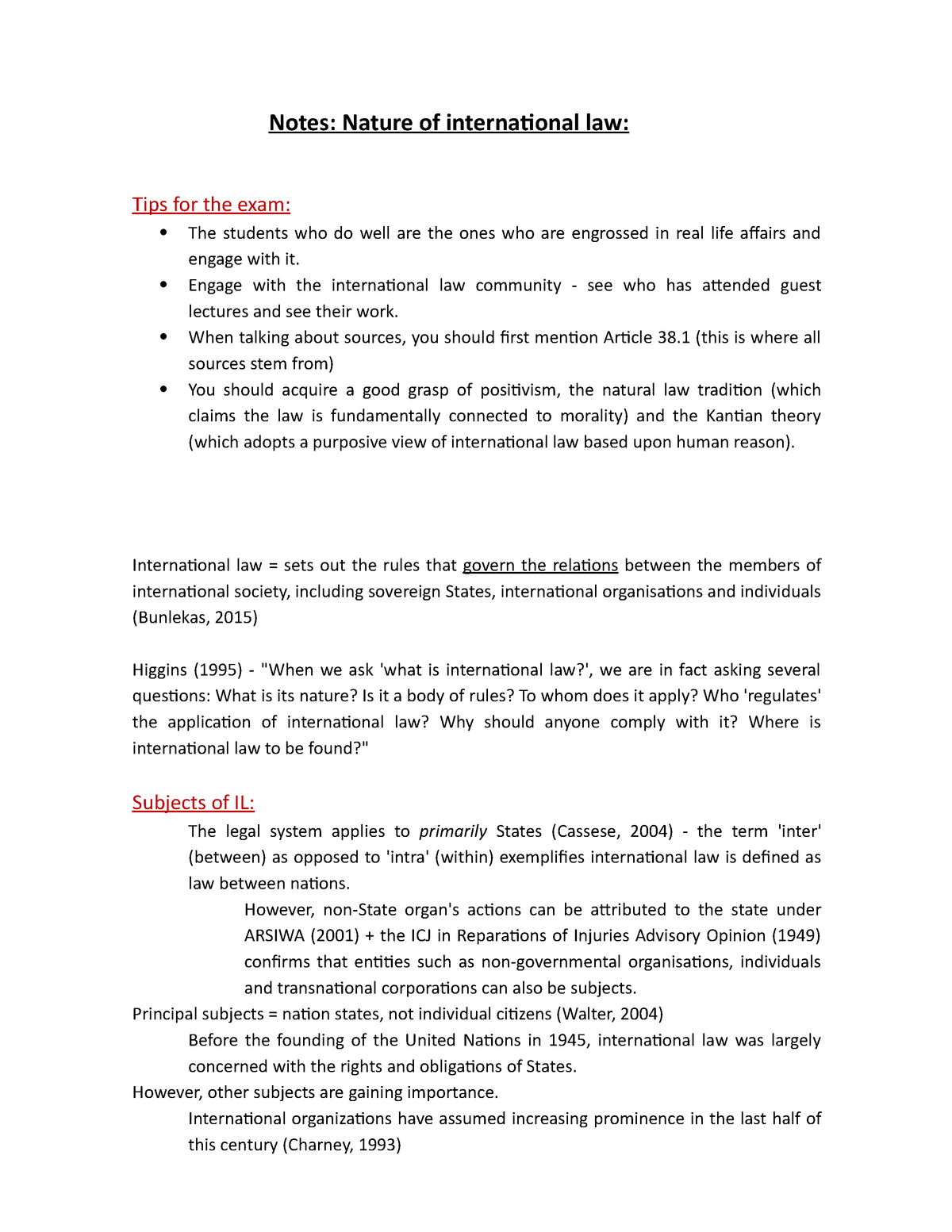Q.5 Define International Law and explain its Nature. Is it of significance to the development of laws of war and their application? 2016

International law is a set of rules and principles that govern the relationships between states and other international actors, such as international organizations and individuals. It regulates a wide range of issues, including diplomatic relations, trade, human rights, the use of force, and the environment. International law is based on the consent of states and is enforced through various mechanisms, such as diplomatic pressure, economic sanctions, and international courts.
The nature of international law is complex, as it is not a monolithic system but rather a diverse set of rules and principles that have evolved over time. It is a mixture of customary law, which is based on the consistent practice of states, and treaty law, which is based on agreements between states. It is also characterized by its decentralized nature, as there is no centralized authority that can enforce international law, and its fluidity, as it is constantly evolving in response to changing circumstances.
International law is of significant importance to the development of laws of war and their application. The rules of international law, including the Geneva Conventions and the Hague Conventions, provide a framework for regulating the conduct of armed conflicts and protecting civilians and prisoners of war. These rules seek to limit the use of force to legitimate purposes, such as self-defense, and to prevent unnecessary harm to civilians and non-combatants.
International law also plays a key role in the prosecution of war crimes and other violations of the laws of war. The establishment of international criminal tribunals, such as the International Criminal Court, has helped to ensure accountability for war crimes and other atrocities, and to deter future violations.
In conclusion, international law is a set of rules and principles that govern the relationships between states and other international actors. It is based on the consent of states and is enforced through various mechanisms. International law is of significant importance to the development of laws of war and their application, providing a framework for regulating the conduct of armed conflicts and protecting civilians and non-combatants. It also plays a key role in the prosecution of war crimes and other violations of the laws of war, ensuring accountability and deterrence.